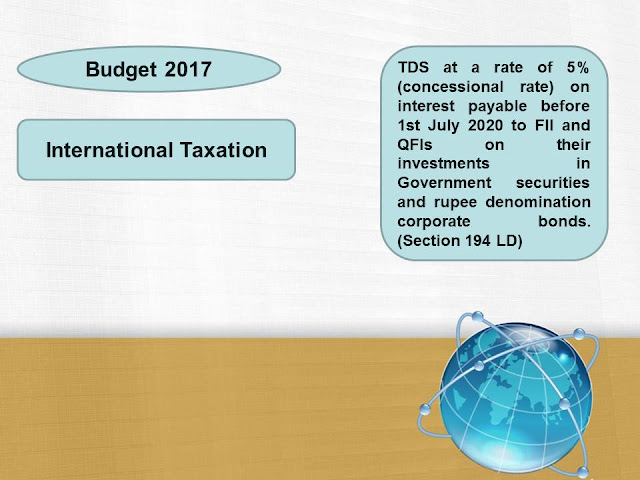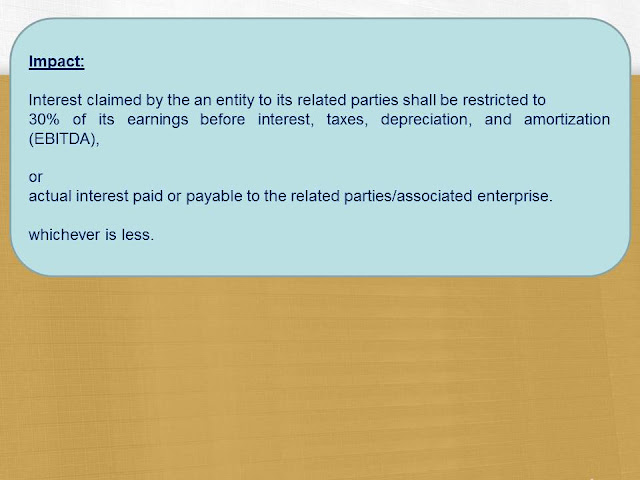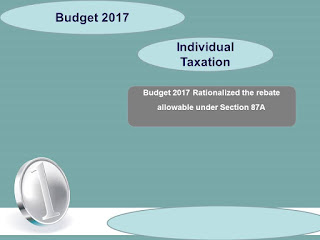In order to align
India’s transfer pricing provisions with the OECD Transfer Pricing Guidelines
and international best practices, Budget 2017 proposes to insert a new section
92CE in the IT Act to provide that a taxpayer would be required to carry out a
secondary adjustment where a primary adjustment to transfer price has been made
in certain stipulated circumstances.
Secondary adjustment
can be made only when,
Ø The
amount of primary adjustment made in any previous year exceed one crore rupees,
and
Ø The
primary adjustment is made in respect of an assessment year commencing after 1st
day of April 2016.
Conditions under which
secondary adjustment can make:
Where a primary
adjustment to transfer price,—
Ø has
been made suo motu by the assessee in his return of income;
Ø made
by the Assessing Officer has been accepted by the assessee;
Ø is
determined by an advance pricing agreement entered into by the assessee under
section 92CC;
Ø is
made as per the safe harbour rules framed under section 92CB; or
Ø is
arising as a result of resolution of an assessment by way of the mutual
agreement
procedure
under an agreement entered into under section 90 or section 90A for avoidance
of double taxation,
Where, as a result of
primary adjustment to the transfer price, there is an increase in the total income
or reduction in the loss, as the case may be, of the assessee, the excess money
which is available with its associated enterprise, if not repatriated to India
within the time as may be prescribed, shall be deemed to be an advance made by
the assessee to such associated enterprise and the interest on such advance,
shall be computed in such manner as may be prescribed.
For the purposes of
this section,—
(i) “associated
enterprise” shall have the meaning assigned to it in sub-section (1) and sub-section
(2) of section 92A;
(ii) “arm’s length
price” shall have the meaning assigned to it in clause (ii) of section 92F;
(iii) “excess money”
means the difference between the arm’s length price determined in primary adjustment
and the price at which the international transaction has actually been
undertaken;
(iv) “primary
adjustment” to a transfer price means the determination of transfer price in accordance
with the arm’s length principle resulting in an increase in the total income or
reduction in the loss, as the case may be, of the assessee;
(v) “secondary
adjustment” means an adjustment in the books of account of the assessee and its
associated enterprise to reflect that the actual allocation of profits between
the assessee and its associated enterprise are consistent with the transfer
price determined as a result of primary adjustment, thereby removing the
imbalance between cash account and actual profit of the assessee.’.





















